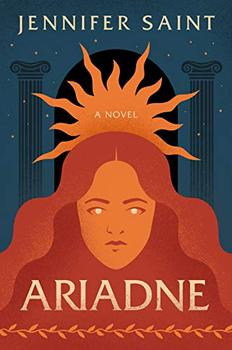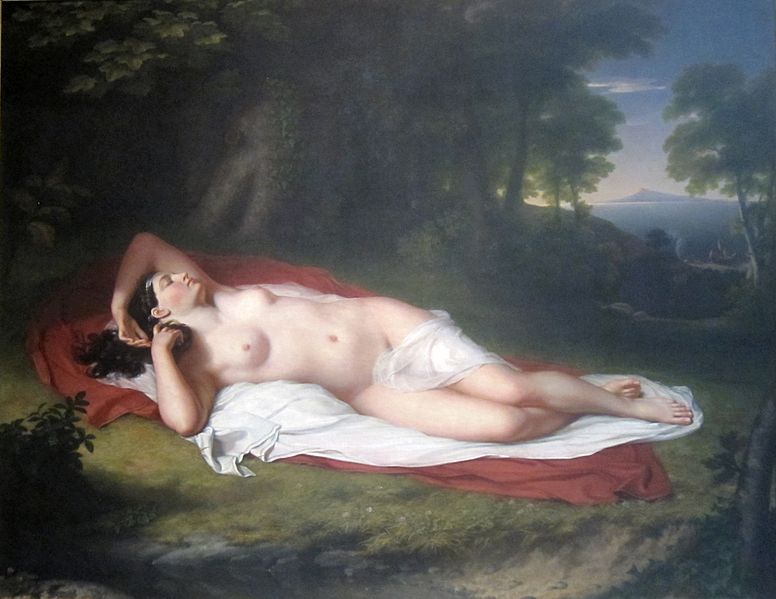Summary | Excerpt | Reading Guide | Discuss | Reviews | Beyond the book | Read-Alikes | Genres & Themes | Author Bio

A mesmerizing debut novel for fans of Madeline Miller's Circe.
Ariadne, Princess of Crete, grows up greeting the dawn from her beautiful dancing floor and listening to her nursemaid's stories of gods and heroes. But beneath her golden palace echo the ever-present hoofbeats of her brother, the Minotaur, a monster who demands blood sacrifice every year.
When Theseus, Prince of Athens, arrives to vanquish the beast, Ariadne sees in his green eyes not a threat but an escape. Defying the gods, betraying her family and country, and risking everything for love, Ariadne helps Theseus kill the Minotaur. But will Ariadne's decision ensure her happy ending? And what of Phaedra, the beloved younger sister she leaves behind?
Hypnotic, propulsive, and utterly transporting, Jennifer Saint's Ariadne forges a new epic, outside the traditional narratives of heroism and glory that leave no room for women.
I was blown away by Ariadne. It presents itself so familiarly at first with all the traditional Greek myths and epic tropes. It then quickly subverts these old traditions to shine a bright light of condemnation on toxic masculinity and the misogyny that runs through all these accepted classical narratives (Jennifer H). Lately it seems many stories have been written offering retellings of the classics of Greek mythology. Ariadne is Jennifer Saint's contribution to this genre. Her story is filled with drama and suspense leading the reader into forbidding places. Her powerful writing kept me on the edge of my seat (Marcia C)...continued
Full Review
(585 words)
This review is available to non-members for a limited time. For full access,
become a member today.
(Reviewed by First Impressions Reviewers).
 In her novel Ariadne, Jennifer Saint retells events from the life of the mythological title figure. In Greek mythology, Ariadne is known for helping the hero Theseus slay the Minotaur — a beast who was the offspring of Ariadne's mother and a bull — and find his way out of the Labyrinth, the maze beneath her father's palace. In some versions of this story, she is said to have later caught the attention of Dionysus, the god of wine, who fell in love with her and married her.
In her novel Ariadne, Jennifer Saint retells events from the life of the mythological title figure. In Greek mythology, Ariadne is known for helping the hero Theseus slay the Minotaur — a beast who was the offspring of Ariadne's mother and a bull — and find his way out of the Labyrinth, the maze beneath her father's palace. In some versions of this story, she is said to have later caught the attention of Dionysus, the god of wine, who fell in love with her and married her.
Ariadne was the daughter of Pasiphae — herself daughter of the sun god Helios — and Minos, king of Crete. After the king's son, Androgeus, was killed during some games that took place in Athens, Minos took revenge by conquering the city. He ...
This "beyond the book" feature is available to non-members for a limited time. Join today for full access.

If you liked Ariadne, try these:

by T. Kingfisher
Published 2024
From USA Today bestselling author T. Kingfisher, Thornhedge is the tale of a kind-hearted, toad-shaped heroine, a gentle knight, and a mission gone completely sideways.

by Caro De Robertis
Published 2024
Perfect for fans of Circe and Black Sun, this bold and subversive feminist retelling of the Greek myth of Psyche and Eros explores the power of queer joy and freedom.
Common sense is genius dressed in its working clothes.
Click Here to find out who said this, as well as discovering other famous literary quotes!